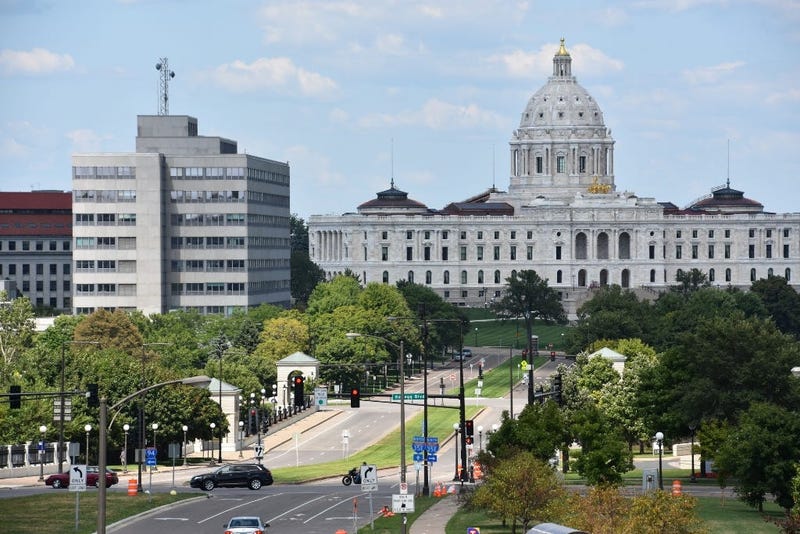
Governor Tim Walz was surrounded by members of the religious community, as well as legislative leaders as he laid out how the state will deal with the shutdown.
"The current federal government shutdown is the longest closure in our nation's history and the impacts are being felt here in Minnesota," said Governor Walz. "The dysfunction in Washington must be met with deliberate and thoughtful leadership."
Republican Party of Minnesota Chairwoman Jennifer Carnahan released a statement in response. "Unfortunately, today, Governor Walz made it is clear he is not listening to Minnesotans who are calling on their elected officials to secure our border," she said.
The federal government gives Minnesota $1 billion a month for programs and services. Some of the programs likely to feel the pinch are the Supplemental Nutrition Assistance Program and Medicaid.
"The feds did put up money for February," said Tony Lourey, Minnesota's Commissioner of Human Services. "But people are going to be running out of their services earlier in February than anticipated."
Walz said they will do what they can to help, including using federal grant money to pay for critical services.
Another problem is the state has been providing funding for the costs of some federal government programs to prevent a disruption in service to Minnesotans. But there is concern that the federal government may not reimburse the state.
"Anytime a significant funding partner shuts down, I, as the budget director, become concerned," said Myron Frans, Commissioner of Minnesota Management and Budget. "Uncertainty slows down economic activity."
Attorney General Keith Ellison said he will make sure the federal government meets its obligations to the people of Minnesota.
"It's about food, but it's bigger than that," said Ellison. "We want to make sure that every penny that Minnesotans expect, that they will get that money, and we are prepared to do what we need to do to get that."
That includes taking legal action if necessary.
There was bi-partisan support for the plan, which as of now does not include appropriating any funds.
"When we do agree on things, it's important for us to stand together and show Minnesotans that doing the right thing isn't partisan," said Republican House Minority Leader Kurt Daudt. "We are talking about health care, and food for our most vulnerable population. It only makes sense that we need to step up and make sure people have those services."
Also tribal communities have been disproportionately impacted by the federal shutdown. Tribes are experiencing immediate budgetary cuts to tribal government and to Indian Health Services offices, which have had to furlough staff. With many tribal members receiving their health care and other critical services through the federal government, the shutdown’s ripple effect is particularly large in Native communities. The Administration has begun consultation with tribes to understand the impact of the shutdown on Minnesota's sovereign nations and see how the state can help provide assistance.
Faith leaders stood in solidarity with the Governor and other legislative and community leaders.
"I certainly wish that the Archdiocese or any of our religious organizations had the resources to be able to fix this, but we can't," Saint Paul and Minneapolis Archdiocese Archbishop Bernard Anthony Hebda said. "But we know that as we come together we support those who represent us in government that we have the opportunity to impact."
Imam Asad Zaman from the Muslim American Society of Minnesota joined the archbishop in calling for everyone to help those in need.
"Faith leaders stand in solidarity with Governor Walz and Lieutenant Governor Flanagan in their call to action."
Walz said there is a statewide Contingency Response Team, which will continue to monitor the impacts of the shutdown and reevaluate the state's response.
